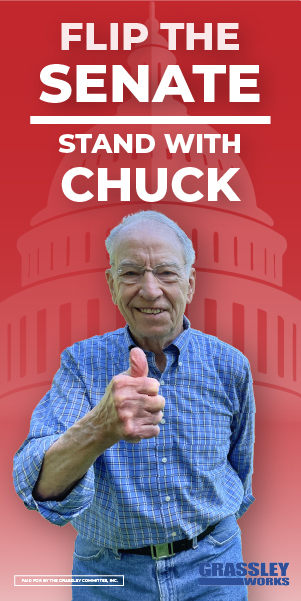Iowans are growing more frustrated with high property taxes and a solution is needed. Since 2000 Iowa property taxes have increased 122 percent more in comparison to population, inflation, and the cost-of-living adjustment for Social Security. The Tax Foundation ranked Iowa with the 10th highest property tax burden in the nation. As a property taxpayer would you consider voicing your opinion about future tax increases if you had the opportunity?
Local government spending is at the heart of high property taxes. Too often blame is placed on the county Assessor, but taxpayers must focus their attention on spending. Whether it is property or income taxes, spending drives high taxation. In addition, many property taxpayers in Iowa are often left wondering why they are told taxes have decreased, but their property tax bills are higher.
This is because many local governments can easily hide behind increased assessments and collect the windfall, while the Assessor takes the blame. This has created an “honesty gap” in property taxes. Without addressing local government spending it will be difficult to implement any property tax relief. Property taxes are also a form of wealth tax. For example, if the value of a home increased by 10 percent, it does not mean the property owner has a 10 percent increase in savings to cover their property tax.
It is time to solve Iowa’s property tax problem with a commonsense solution. Iowa needs a Utah-style Truth-in-taxation law. Utah’s law is considered the gold standard for property tax reform and it is the most taxpayer-friendly property tax law in the nation. Since 1985 Utah’s Truth-in-Taxation law is providing property tax relief by slowing the growth of property taxes.
Utah’s Truth-in-Taxation law is a revenue-based limitation, which means as valuations increase property tax rates decrease. The Truth-in-Taxation law guarantees that each taxing entity receives the same property tax revenues as the previous year including new growth. This prevents local governments from getting a windfall because valuations have increased.
If a local government wants to exceed the certified tax rate, it then requires a Truth-in-Taxation hearing that is accompanied by an extensive public notification and hearing process. Truth-in-Taxation also forces local government officials to take recorded votes to approve an increase in tax collections.
Through the Truth-in-Taxation process, local governments must justify why they want to increase taxes for additional spending. A crucial aspect of Utah’s law is a direct notification requirement, where notices are sent to taxpayers, providing information on the proposed tax increase and how it will impact their tax bill. It also includes the date, time, location of the Truth-in-Taxation budget hearing. This extensive public notification and hearing process has been successful.
Rusty Cannon, President of the Utah Taxpayers Association, argues that Utah’s law provides “sunlight” on the budgeting process. Cannon noted that while “decisions can be made to raise taxes, the law simply requires that it’s done in the sunlight—that you essentially need to make your case to voters, to taxpayers, as to why the increase in revenue is needed.”
Truth-in-Taxation forces accountability and it makes taxing authorities think twice about raising taxes. “You do it in a public setting, you notify them of what their liability increase will be on a parcel-by-parcel basis, so everybody has that full disclosure. So, there’s no automatic inflation that creeps in. There’s no automatic step-up. There’s no automatic windfall if property values increase. It keeps a lid on those property taxes. However, if they do want to raise them, they simply have to do it in that public process,” stated Cannon.
Recently Kansas and Nebraska passed laws based on Utah’s Truth-in-Taxation. The Kansas law serves as the closest example to Utah’s law because of its strength. Dave Trabert, President of the Kansas Policy Institute, argues that the new Kansas law “closes the property tax honesty gap.” “Local officials can no longer pretend to ‘hold the line’ on property taxes while taking in large increases from valuation changes. Now, they have to be honest about the entire tax increase they impose,” stated Trabert.
Kansas’s Truth-in-Taxation law is already working for taxpayers. Currently, over 100 local taxing authorities are not going to increase their property taxes next year, while others are looking at small increases.
Public officials should not be afraid of Truth-in-Taxation. Providing more accountability and transparency will only improve local government “And that is the idea behind Truth in Taxation, is that you can make the decision, you just have to do it in the open,” noted Cannon. In addition, elected officials should explain to taxpayers why they need additional spending. Too often governments, at all levels, forget that it is the money belongs to the hard work of the taxpayer.
John Hendrickson is policy director for Tax Education Foundation of Iowa, a public policy think tank



